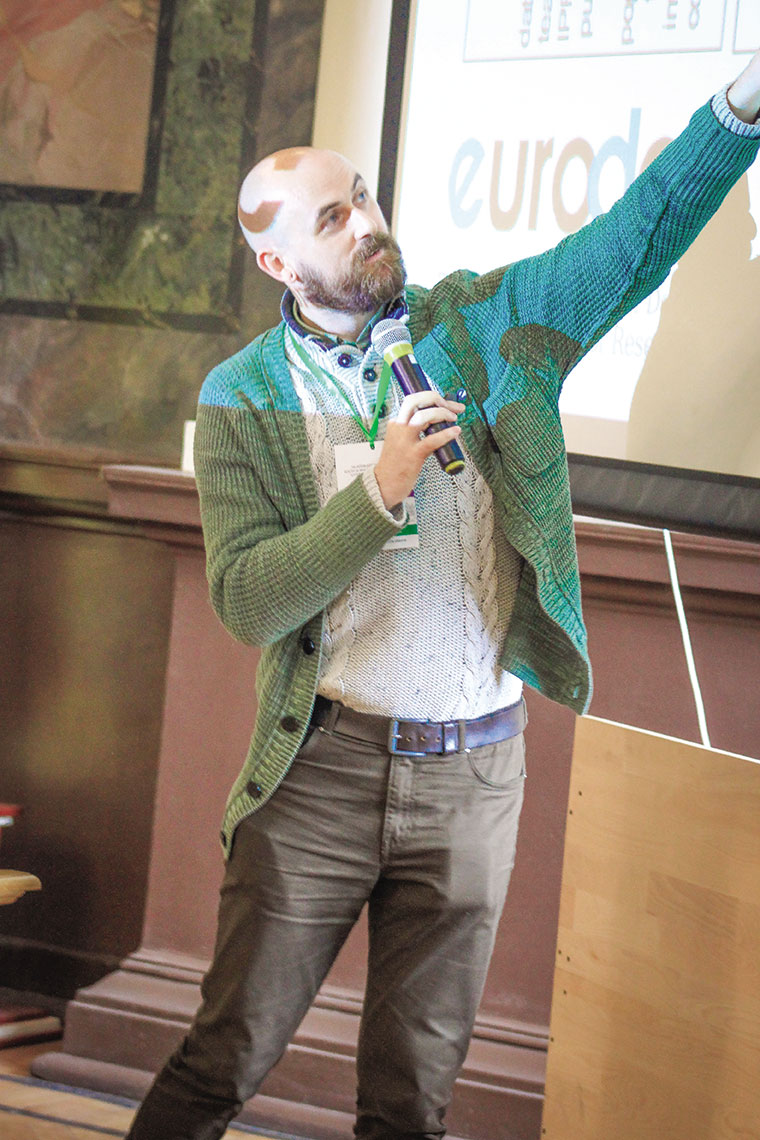The upcoming revolution of Open Science

Open Science is all about an ongoing transition in how research is performed and how knowledge should be shared. We met Gareth O’Neil, president of the European Council of Doctoral Candidates and Junior Researchers (Eurodoc), to find out more about how researchers can take part in this upcoming revolution.

WHAT’S AT STAKE?
Open Science aims to open up the research cycle via digital tools and platforms (including the processes and outcomes of research) in order to validate and share research with researchers and society. There are several practices under Open Science:
- Open Access to open up research publications;
- Open/FAIR Data to open up and make research data findable, accessible, interoperable, and reusable;
- Open Education to open up research training materials for trainers and students;
- Open Source to open up the programming code behind research;
- Citizen Science to involve citizens in research
Eurodoc fully supports Open Science and in particular advocates for more awareness raising as well as adequate training and support for researchers in Open Science at institutions. Traditional science has involved keeping research closed to some extent, so a cultural shift is needed in academia to move to Open Science.
WHAT’S PLAN S?
A radical new plan from a coalition of national research funders called ‘Plan S’ is aiming to speed up the transition to Open Access and give full and immediate Open Access to research publications by 2020, as explained here.
Eurodoc, together with the Marie Curie Alumni Association (MCAA), and the Young Academy of Europe (YAE) released a joint statement supporting the 10 principles behind Plan S with some critical recommendations on implementing the plan from the perspective of researchers.
Plan S sets some radical limitations on publications which are important for researchers funded by a coalition member: researchers must retain copyright under an open licence; there must be immediate access without any embargo period; there must be full access with restrictions on hybrid journals; and there will be a cap on the fee which can be spent per publication to publish Open Access. A research publication must adhere to all these limitations to be compliant and be funded under Plan S.
MIXED REACTIONS
Our joint statement was submitted to the coalition members and our three organisations had a meeting with Robert-Jan Smits (Special Envoy on Open Access at the European Commission) and Stephan Kuster (Secretary-General at Science Europe) to discuss our recommendations for Plan S.
The coalition members have since released a detailed implementation guidance for Plan S and have taken some of our recommendations into account (https://www.coalition-s.org/feedback).
The reaction from the broader research community has been mixed. Some researchers started a petition against Plan S, worried it focuses too much on journals charging fees for Open Access and that it restricts their publishing options and their freedom to choose where to publish.
Other researchers started yet another petition in support of funder mandates for Open Access and indirectly for Plan S. And the universities via the European University Association (EUA) have also come out in support of Plan S. The plan has succeeded in making Open Access a hot topic and is now being discussed across the whole research community.
WHAT’S NEXT?
An online consultation on the details of the implementation guidance for Plan S was open to all research stakeholders until 1 February 2019. Eurodoc, MCAA, and YAE are now in the process of drafting a joint response to the implementation guidance with our members and will submit this statement to the coalition members within the deadline.
Our goal will be to make sure that our recommendations are taken into account and ensure not only that Plan S is a success for Open Access, but that Plan S is a success for researchers.
We note that implementing the principles of Plan S will not be enough to change the culture of limited access to research publications. The current research and career evaluation system is unfortunately based, to a large extent, on publishing in high-impact journals which are often not Open Access and charge high fees for Open Access and are thus not compliant with Plan S. The coalition members will themselves need to change their own research evaluation system so that researchers are positively rewarded for other research activities and publishing in Open Access.